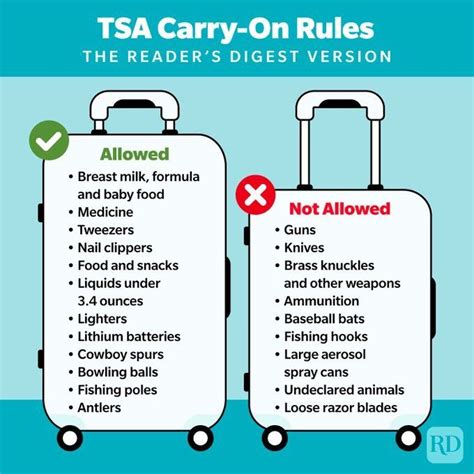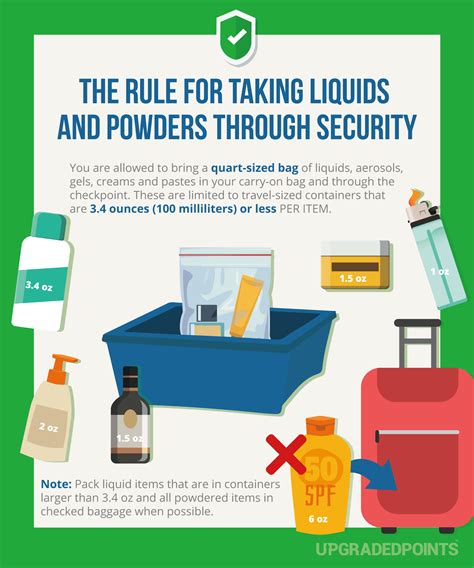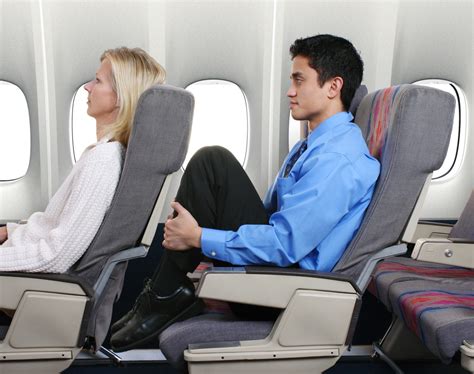
Airlines are increasingly enforcing strict carry-on baggage rules, potentially leading to denied boarding even for passengers without checked luggage if overhead bins are full.
A growing number of airline passengers are facing an unexpected hurdle that could lead to them missing their flights, even if they are traveling with only carry-on baggage. Heightened enforcement of carry-on size and weight restrictions, coupled with limited overhead bin space, is resulting in gate agents forcing passengers to gate-check bags or, in some cases, denying boarding altogether. This situation is creating frustration and confusion among travelers who are accustomed to the flexibility of carry-on luggage.
The issue stems from several converging factors. Firstly, airlines are actively trying to generate revenue through checked baggage fees, which incentivizes more passengers to opt for carry-ons to avoid these charges. Secondly, increased air travel volume is placing additional strain on airport infrastructure, including available space in overhead bins. Finally, stricter enforcement of existing carry-on rules means that bags previously allowed on board are now being flagged at the gate.
According to travel experts, the problem is particularly acute on full flights, where overhead bin space is at a premium. “When flights are packed, the competition for overhead bin space intensifies,” explains George Hobica, founder of Airfarewatchdog.com. “Gate agents are under pressure to ensure that all passengers can stow their belongings safely and efficiently, which often leads to stricter enforcement of carry-on rules.”
The consequences for passengers can be significant. Those forced to gate-check bags may face delays in retrieving their luggage upon arrival, while those denied boarding may incur additional expenses for rebooking flights and accommodation. Furthermore, the uncertainty surrounding carry-on rules can add stress and anxiety to the travel experience.
“The key is to be prepared and informed,” advises consumer advocate Edgar Dworsky. “Check your airline’s specific carry-on size and weight restrictions before you leave for the airport, and be prepared to gate-check your bag if necessary. Consider purchasing a lightweight, compliant carry-on bag to minimize the risk of issues at the gate.”
Passengers are also advised to arrive at the airport early to allow ample time for check-in and security screening. This can help avoid last-minute stress and increase the likelihood of finding available space in the overhead bins.
The recent increase in enforcement has left many passengers feeling misled, particularly those who have historically been able to carry on certain bags without issue. Airlines, however, maintain that they are simply enforcing existing rules to ensure passenger safety and operational efficiency.
“Our carry-on baggage policies are in place to ensure a safe and comfortable flying experience for all passengers,” stated a spokesperson for United Airlines. “We regularly review our policies and procedures to ensure they are effective and fair.”
However, some travelers feel that the airline’s motivations are primarily financial. “It’s clear that airlines are using carry-on rules as another way to generate revenue,” says frequent flyer Mark Thompson. “By making it more difficult to travel with carry-ons, they are effectively forcing passengers to pay for checked baggage.”
The situation highlights the need for greater transparency and consistency in the application of carry-on rules. Passengers are calling for airlines to provide clearer guidelines on acceptable carry-on sizes and weights, as well as to ensure that gate agents are consistently enforcing these rules across all flights.
Some airlines are exploring alternative solutions to address the issue of limited overhead bin space. These include offering incentives for passengers to check their bags, such as reduced baggage fees or priority baggage handling, and investing in larger overhead bins on newer aircraft.
The debate over carry-on baggage rules is likely to continue as air travel volume continues to grow. Passengers are encouraged to stay informed about their airline’s specific policies and to be prepared for potential changes in enforcement. By taking proactive steps to comply with carry-on rules, travelers can minimize the risk of encountering problems at the gate and ensure a smoother travel experience.
The increase in carry-on baggage restrictions also has a knock-on effect on airport security. Longer queues at security checkpoints, caused by passengers struggling to repack overstuffed carry-ons, can lead to delays and missed flights. Security personnel are also tasked with enforcing rules regarding liquids and prohibited items in carry-on bags, further adding to the congestion at security checkpoints.
Furthermore, the environmental impact of stricter carry-on enforcement is also a concern. If more passengers are forced to check their bags, this will inevitably lead to an increase in the amount of baggage being transported by airlines, resulting in higher fuel consumption and carbon emissions.
The issue of carry-on baggage restrictions is not unique to the United States. Airlines around the world are grappling with the same challenges of limited overhead bin space and increased passenger demand. Many European airlines have implemented stricter carry-on rules in recent years, while some Asian airlines are experimenting with different boarding procedures to optimize the use of overhead bin space.
For passengers with disabilities or medical conditions, the issue of carry-on baggage restrictions can be particularly challenging. Passengers who require medication or assistive devices may need to carry these items on board, even if they exceed the airline’s size or weight restrictions. In such cases, it is essential to contact the airline in advance to discuss specific needs and to obtain any necessary documentation.
The ongoing debate over carry-on baggage rules underscores the need for a more collaborative approach between airlines, airports, and passengers. By working together to find solutions that address the challenges of limited overhead bin space and increased passenger demand, the industry can create a more efficient and enjoyable travel experience for all. This includes investing in infrastructure improvements, such as larger overhead bins and more efficient baggage handling systems, as well as developing clearer and more consistent carry-on baggage policies.
Ultimately, the responsibility for ensuring a smooth travel experience lies with both the airlines and the passengers. Airlines must be transparent about their carry-on baggage rules and enforce them consistently, while passengers must be prepared to comply with these rules and to adapt to potential changes in enforcement. By working together, the industry can mitigate the risks associated with carry-on baggage restrictions and create a more positive travel experience for all.
Frequently Asked Questions (FAQs)
1. What is the new airline rule regarding carry-on baggage?
The “new airline rule” isn’t a single, formal new regulation. It refers to the increased and stricter enforcement of existing carry-on baggage size and weight restrictions by airlines. This means that even if you don’t have a checked bag, you could be forced to gate-check your carry-on or, in extreme cases, be denied boarding if the overhead bins are full or your bag exceeds the airline’s limits. The enforcement varies between airlines and even between flights on the same airline. The primary driver is the airlines attempt to gain revenue through baggage fees.
2. Why are airlines suddenly enforcing carry-on rules more strictly?
Several factors contribute to the stricter enforcement:
- Revenue Generation: Airlines charge fees for checked baggage, incentivizing passengers to carry on luggage to avoid these fees.
- Increased Air Travel Volume: More passengers mean more carry-ons competing for limited overhead bin space.
- Operational Efficiency: Full overhead bins can delay boarding and deplaning, impacting airline schedules. Airlines are trying to maximize efficiency and on-time performance.
- Safety: Overstuffed overhead bins can pose a safety risk if items fall out during turbulence.
- Following Existing Policies: Airlines claim they are simply enforcing existing policies, which many passengers may not have been aware of or have previously been able to circumvent.
3. What can I do to avoid being forced to gate-check my carry-on?
Here are several strategies to minimize the risk of gate-checking your carry-on:
- Check Airline’s Baggage Policy: Before your trip, visit your airline’s website to review their specific carry-on size and weight restrictions. Pay attention to both dimensions and weight limits. Many airlines have size guides or templates at the gate for comparison.
- Use a Compliant Carry-on Bag: Invest in a carry-on bag that meets the airline’s size and weight requirements. Opt for a lightweight bag to maximize the amount you can pack without exceeding weight limits.
- Pack Light: Reduce the amount of items you pack. Consider wearing your bulkiest items on the plane. Utilize travel-sized toiletries and pack only essential items.
- Arrive Early: Arriving at the gate early increases your chances of finding space in the overhead bins. Boarding usually proceeds by zone or group, so if you have priority boarding (often associated with airline status or premium tickets), utilize it.
- Consider Priority Boarding: If you don’t have priority boarding, consider purchasing it (if offered) to board earlier and secure bin space.
- Be Prepared to Remove Items: If your bag is slightly too large, be prepared to remove items to make it fit in the sizing device. A small, foldable shopping bag can be helpful for carrying these items.
- Utilize Personal Item: Maximize the use of your personal item (e.g., a purse, backpack, or laptop bag). Pack essential items that you might need during the flight in your personal item, freeing up space in your carry-on.
- Consider Shipping Items: For longer trips or if you need to bring a lot of items, consider shipping some items to your destination.
- Check Baggage (If Necessary): If you know you’ll have too much to carry on, it might be more cost-effective and less stressful to check your bag in advance, especially if you can pre-pay baggage fees online.
- Monitor Flight Loads: Use tools like ExpertFlyer to check the predicted flight loads for your flight. Lighter loads mean more overhead bin space.
- Travel Off-Peak: Consider flying during off-peak hours or days, when flights are typically less crowded.
4. What happens if I am denied boarding due to carry-on baggage issues?
If you are denied boarding due to carry-on baggage issues, the airline’s responsibility to you depends on the specific circumstances. Here’s a breakdown:
- Airline Error: If the denial is due to the airline’s error (e.g., overselling the flight or misinterpreting their own carry-on policy), you are generally entitled to compensation, including rebooking on the next available flight, accommodation (if needed), and potentially monetary compensation. This is governed by regulations like DOT (Department of Transportation) rules in the US or EU regulations in Europe.
- Passenger Non-Compliance: If you are denied boarding because you refused to comply with the airline’s carry-on rules (e.g., refusing to gate-check an oversized bag), you are generally not entitled to compensation. The airline may rebook you on a later flight, but you may have to pay a change fee.
- Flight Delay: If the carry-on issues cause a significant flight delay, you may be entitled to compensation, depending on the length of the delay and the reason for the delay. Regulations vary by country.
- Documentation: Document everything. Get the reason for denial of boarding in writing from the airline representative. Keep copies of your boarding pass, baggage receipts, and any expenses incurred due to the denied boarding.
- Contact the Airline: Contact the airline’s customer service department to file a complaint and request compensation. Be polite but firm, and clearly explain the situation.
- File a Complaint: If you are not satisfied with the airline’s response, you can file a complaint with the Department of Transportation (DOT) in the US or the relevant regulatory agency in your country.
5. What are my rights as a passenger regarding carry-on baggage?
Your rights as a passenger regarding carry-on baggage are primarily defined by the airline’s contract of carriage, which is the agreement between you and the airline. Here are some key points:
- Contract of Carriage: This document outlines the terms and conditions of your flight, including the airline’s baggage policy. You can usually find it on the airline’s website. Familiarize yourself with it before your trip.
- Published Baggage Policy: Airlines are required to clearly publish their carry-on baggage size and weight restrictions.
- Consistent Enforcement: Airlines should ideally enforce their carry-on rules consistently. However, enforcement can vary depending on factors like flight loads and gate agent discretion. Inconsistency can be a basis for complaint.
- Damaged or Lost Gate-Checked Bags: If your gate-checked bag is damaged or lost, the airline is liable for compensation, up to a certain limit (usually specified in the contract of carriage). Make sure to report any damage or loss immediately upon arrival.
- Reasonable Accommodation: Airlines are required to make reasonable accommodations for passengers with disabilities or medical conditions who need to carry essential medical equipment or medication on board. Contact the airline in advance to discuss your needs.
- Refusal of Transport: The airline has the right to refuse transport to passengers who fail to comply with safety regulations or the airline’s rules, including carry-on baggage policies. However, this refusal must be reasonable and not discriminatory.
- DOT Regulations (US): In the US, the Department of Transportation (DOT) has regulations regarding airline consumer protection, including baggage liability and compensation for denied boarding.
- EU Regulations (Europe): In Europe, EU Regulation 261/2004 provides passengers with certain rights in case of denied boarding, flight delays, and cancellations, including the right to compensation and assistance.
- Small print: It is extremely important to read the small print as well, because many restrictions are well hidden.








